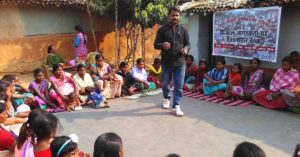TBI Blogs: How One Staunch Gandhian Helped a Tribal Village in Maharashtra Achieve Self-Rule
Born on the December 31, 1949, Mohan Hirabai Hiralal is a staunch Gandhian who played a key role in transforming Mendha (Lekha), a tribal village in Gadchiroli, Maharashtra and helping it achieve ‘Poorna Swaraj’.
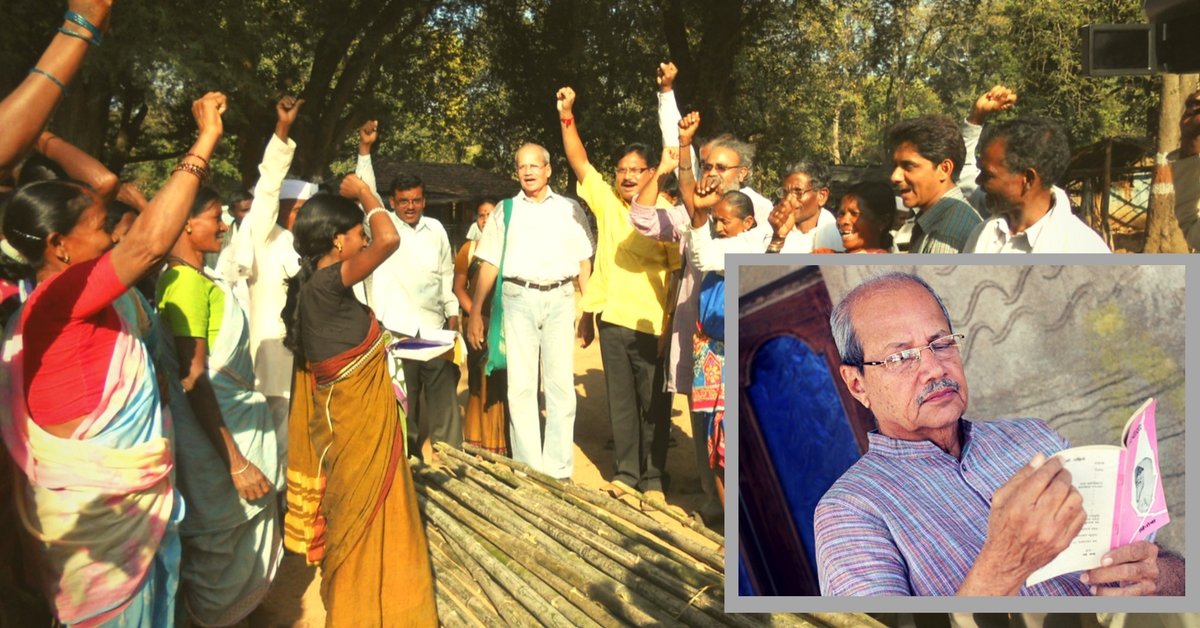
Born on the December 31, 1949, Mohan Hirabai Hiralal is a staunch Gandhian who actively participated in Jayaprakash Narayan’s Chhatra Yuva Sangharsh Wahini. The Gandhi-Vinoba concept of ‘People Power’ has been a driving factor in the life of this renowned activist.
While conducting a study on ‘People and Forest,’ Mohan H. H. was on the look out for villages with an autonomous decision making structure.
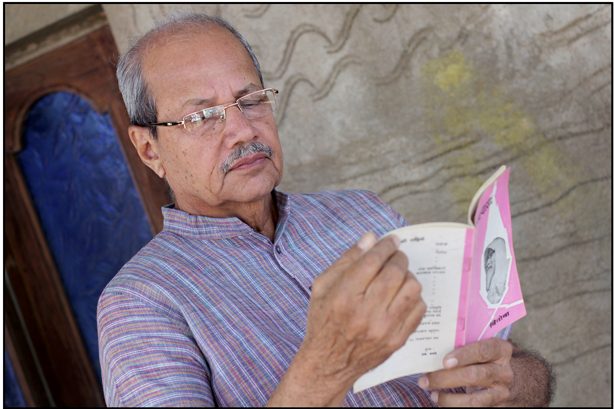
It was during this period that he first came across Mendha (Lekha), a tribal village in Gadchiroli, Maharashtra. The residents of this village were known for living together harmoniously, operating under the principle of mutual cooperation.
In the year 1984, interactions with the villagers, as well as Mohan’s own belief in ‘People Power,’ drove him to set up ‘Vrikshamitra,’ an organisation, that aimed to propagate the inter-linked causes of environment, forest livelihood and self-rule.
In his role as a ‘Sahyogi Mitra’ or ‘Companion in Development’ to the people of Mendha (Lekha), the knowledgeable activist popularised the concept of Gram Swaraj. Under his watchful guidance and unwavering support, the residents of Mendha (Lekha), succeeded in making the Gram Sabha more inclusive, participatory and active.
In order to do so, the villagers set up several ‘study circles,’ whose sole purpose was to study and analyse an issue from different perspectives.
Mohan H. H., along with other like-minded individuals, participated in these discussions. The ‘study circles’ would then put together a report with their findings and conclusions, and submit the same to the Gram Sabha. Equipped with these insightful reports, the Gram Sabha could then make an informed decision that reflected the will of the people.
The villagers operate under the motto ‘In Delhi, we have our Government, but in our village, we ourselves are the Government.’ This exemplifies the spirit of ownership the villagers have adopted. Today, thanks to Mohan’s involvement, every decision taken in the interest of the village is only made after getting the consensus of each and every resident. Village community work is also considered the work of every individual, and every resident ensures that they put in their time, labour and resources towards the development of the village.
Villagers also contribute 10% of their income to the Village Fund (Gram Kosh) of the village. Each house in the village also has a bio-gas unit along with a toilet.
The villagers have even set up a Grain Bank that will prove to be extremely useful in unforeseen emergencies.
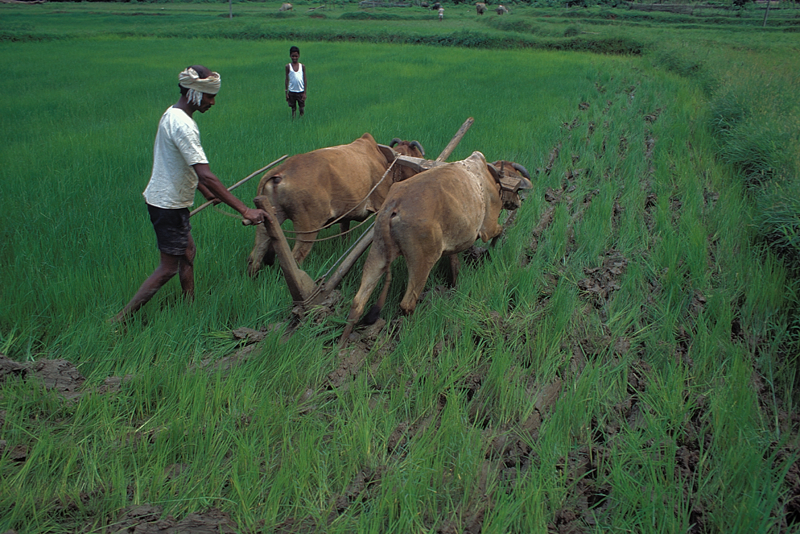
Mohan H. H. also created awareness amongst the villagers about their traditional ‘Nistar’ rights, or their ‘rights to use forest produce for domestic consumption.’ This helped in popularising the concept of participatory forest management at the local, state as well as national levels. This participatory movement also resulted in the conferment of Community Forest Rights by the Government to the village of Mendha (Lekha) and Marda, in 2009, under the Scheduled Tribes and Other Traditional Forest Dwellers (Recognition of Forest Rights) Act 2006, popularly known as the Forest Rights Act.
In 2011, the Government also gave the Gram Sabha of Mendha (Lekha), the authority to issue transit passes to bamboo purchasers.
Thanks to these initatives, the villagers have now been empowered to manage, protect, conserve and generate income, all from forest produce.
Realising that a simple awareness of rights, or their reclamation, is not enough, Mohan H. H. is now making all efforts to ensure that the villagers take complete ownership of the forest and its resources. He is encouraging them to take stock of their resources and, on this basis, to implement a plan to ensure full and gainful employment of all the villagers. This, he believes, will not only lead to the economic empowerment of the villagers, but will also result in the economic development of the village, all while protecting, nurturing and improving its environment.
Mohan H. H. is now also in the process of drafting a manual on the subject, and is using participatory processes to gather content and inputs for the same.
True self-rule can only be achieved when all sections of a community actively participate in its various processes.
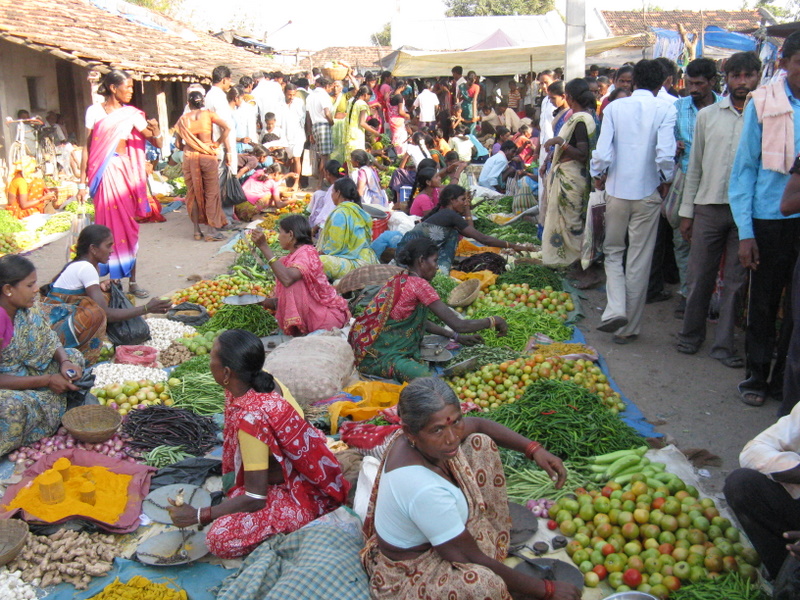
Hence, when Mohan H. H. learnt that the women of Mendha (Lekha) were keen to participate in the Gram Sabha, but that their participation was conditional upon the resolution of the prevalent liquor menace, he immediately set to work on addressing the problem.
Alcohol is a part of the adivasi culture and as such, could not be completely banned. Instead, after a series of discussions with the ‘study circle,’ it was decided that only the sale of alcohol would be banned in the village. Should liquor be required during any traditional rituals and functions, individuals must take prior permission from the Gram Sabha.
With the liquor issue thus resolved, the doors of the Gram Sabha were thrown open for the women of Mendha (Lekha), who soon became actively involved with its various facets to ensure the development of the village. This not only further empowered the residents of the village, but also solidified the foundation of self-rule in place at Mendha (Lekha).
Village women have now formed Self Help Groups and have even set up micro-activities like ration shops, kerosene shops, tractor renting services and maintenance of forest reservoirs.
In addition to the women, the youth of the village too, are, under the guidance of Mohan H. H., becoming active participants in the success story of the village. Educated youth are involved in the development of Community Forest Resource & Biodiversity Management, an initiative that started with the preparation of the Village Biodiversity Register and includes an in-depth study and evaluation of the forest and its rich resources.
The youth of the village, with guidance and inputs from village elders, are also demarcating forest land and linking it to the global positioning system.
The work involves study and characterisation of the different types of trees, the various bamboo plantation zones, different water bodies, prospects for watershed management /rainwater harvesting at various locations, crop yield, animals, birds, terrain and various other features.
The youth are also in the process of setting up a computerised data management system to store and manage this information, as well as information on the various activities of the village and its administration, to ensure transparency and accountability and therefore, greater efficiency in governance.
Programmes like vocational training and skill development in bamboo processing and product making, are being implemented in the village with the support of the government.
These programmes are training village youth in treatment processes, value addition, nursery techniques, craft and furniture making as well as housing and construction.
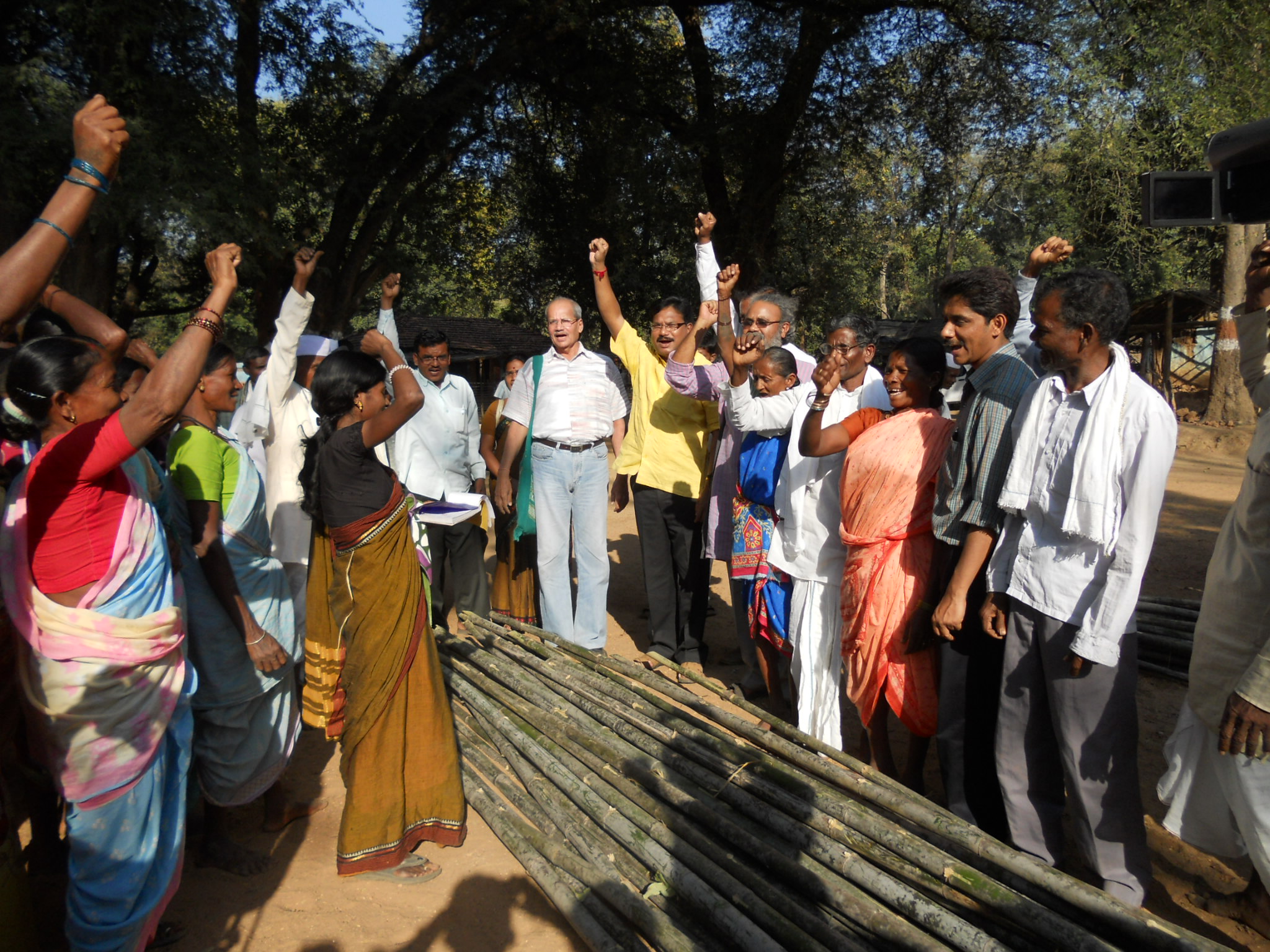
Mohan’s efforts have also helped the village efficiently implement anti-corruption initiatives. When the villagers are entitled to receive money under any government scheme, they visit the relevant department office in groups, check the documents with due diligence and ensure they receive the entitled amount.
In 2013, Mohan’s tireless efforts resulted in Mendha (Lekha) being declared a Gramdan village under the Maharashtra Gramdan Act of 1964, making it the first village, in 35 years, to become a Gramdan Village. After the legal formalities were completed, this announcement was published in the Gazette of the Government of Maharashtra.
Mendha’s Gram Sabha is a manifestation of the dormant potential present in human beings, which can be replicated across the country. Mohan H. H. firmly believes that constructive work and Satyagraha are inseparable, and today, thanks to his efforts, the villagers of Mendha (Lekha) are well versed in both. When a village community like Mendha (Lekha), unanimously decides to take decisions by consensus, a different structure comes into existence, even though the members of the community remain the same; and this structure is powerful in the real sense of the word, as it is truly reflective of people power.
The architect of this change is, of course, Mohan Hirabai Hiralal, although the power and wisdom of the villagers has also played a key role in successfully transforming the community, and achieveing ‘Poorna Swaraj’ that is, complete freedom in all respects and the authority and ability to look after their own affairs.
Recently, on 7th November, 2016, Shri Mohan Hirabai Hiralal was conferred the Jamnalal Bajaj Award, in the category of Constructive Work.
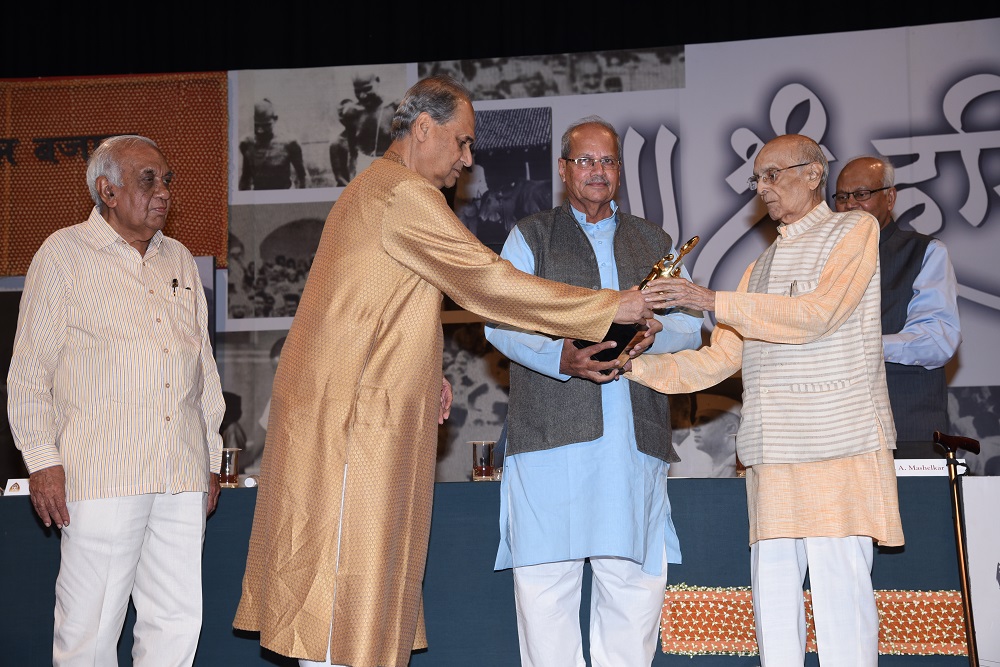
Know an inspirational changemaker working for rural development at the grassroots level? Click below to nominate them for Jamnalal Bajaj Awards 2017.
Unable to view the above button? Click here
Like this story? Or have something to share? Write to us: [email protected], or connect with us on Facebook and Twitter.
NEW: Click here to get positive news on WhatsApp!
If you found our stories insightful, informative, or even just enjoyable, we invite you to consider making a voluntary payment to support the work we do at The Better India. Your contribution helps us continue producing quality content that educates, inspires, and drives positive change.
Choose one of the payment options below for your contribution-
By paying for the stories you value, you directly contribute to sustaining our efforts focused on making a difference in the world. Together, let's ensure that impactful stories continue to be told and shared, enriching lives and communities alike.
Thank you for your support. Here are some frequently asked questions you might find helpful to know why you are contributing?


This story made me
-
97
-
121
-
89
-
167





